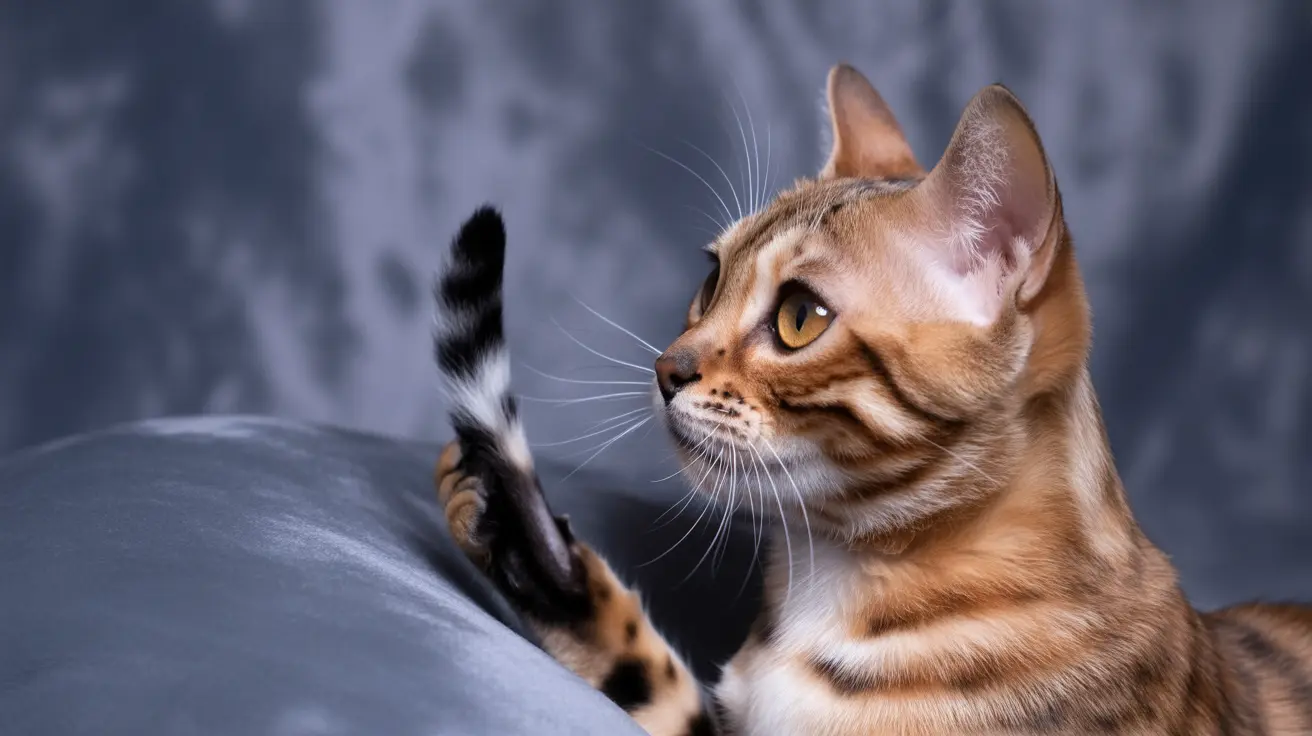Have you ever noticed a single black whisker standing out among your cat's otherwise white or light-colored whiskers? This fascinating phenomenon is more common than you might think and has several interesting explanations rooted in feline biology and genetics.
While most cats display predominantly white whiskers, the appearance of one or more black whiskers is a natural occurrence that typically doesn't indicate any health concerns. Let's explore why these unique whisker variations happen and what they mean for your feline friend.
The Science Behind Cat Whiskers
Cat whiskers, scientifically known as vibrissae, are specialized sensory organs that serve crucial functions in a cat's daily life. These thick, sturdy hairs are rooted deeply in follicles packed with sensitive nerve endings, making them essential tools for navigation and spatial awareness.
Unlike regular fur, whiskers are typically unpigmented, which explains their characteristic white appearance. However, genetic factors and other biological processes can occasionally introduce pigmentation, resulting in darker or black whiskers.
Common Causes of Black Whiskers
Genetic Factors
The primary reason for a single black whisker often traces back to genetics. Just as genes control coat color patterns, they can influence whisker pigmentation. Some cats, particularly those with darker coat colors, are more likely to develop occasional black whiskers due to their genetic makeup.
Age-Related Changes
As cats age, their whiskers may undergo color changes, similar to how human hair can turn grey. Sometimes, this process happens unevenly, resulting in individual whiskers developing different colors, including black or darker shades.
Natural Whisker Cycles
Cats naturally shed and regrow their whiskers throughout their lives. During this renewal process, new whiskers might grow in with different coloration. This is perfectly normal and part of your cat's natural growth cycle.
A single black whisker may eventually fall out and be replaced by a white one, or vice versa. This cycling process is continuous and doesn't affect your cat's sensory capabilities.
When to Monitor Whisker Changes
While a single black whisker is usually harmless, certain situations warrant attention. Watch for:
- Sudden loss of multiple whiskers
- Changes in whisker texture or direction
- Inflammation around whisker follicles
- Behavioral changes related to spatial awareness
Care and Maintenance
Whiskers require minimal maintenance, but there are important care guidelines to follow:
- Never trim or pluck whiskers
- Keep the facial area clean
- Allow whiskers to shed naturally
- Monitor any unusual changes
Frequently Asked Questions
Why does my cat have one black whisker among mostly white ones?
A single black whisker typically results from genetic factors or natural variation in pigmentation during the whisker's growth cycle. It's a common and harmless occurrence that can happen at any point in a cat's life.
Can whisker color changes, like a single black whisker, indicate my cat's age or health?
While whisker color changes can sometimes relate to aging, a single black whisker alone isn't typically an indicator of age or health concerns. However, if accompanied by other symptoms, consult your veterinarian.
Are black whiskers on cats caused by genetics or environmental factors?
Black whiskers are primarily influenced by genetics, though environmental factors like age, stress, or injury can occasionally affect whisker pigmentation. Genetics plays the most significant role in determining whisker color.
Should I be concerned if my cat's whiskers suddenly turn black or darker?
Generally, no. Gradual changes in whisker color are normal. However, if multiple whiskers suddenly change color alongside other health changes, consult your veterinarian.
How do cat breeds or coat colors affect whisker pigmentation and color variations?
Cats with darker coat colors, especially black cats, are more likely to have darker or black whiskers due to their genetic makeup. However, whisker color can vary independently of coat color in any breed.
Conclusion
A single black whisker among your cat's white ones is typically nothing to worry about. It's simply one of the many unique characteristics that make your cat special. While it's always good to monitor changes in your pet's appearance, this particular variation is usually just a natural expression of your cat's genetic makeup and biological processes.






